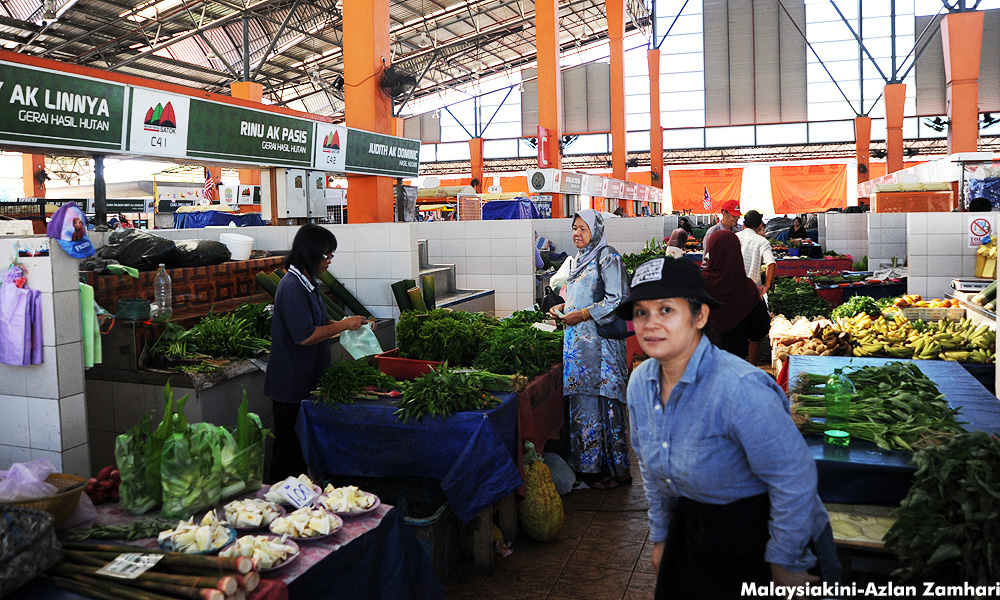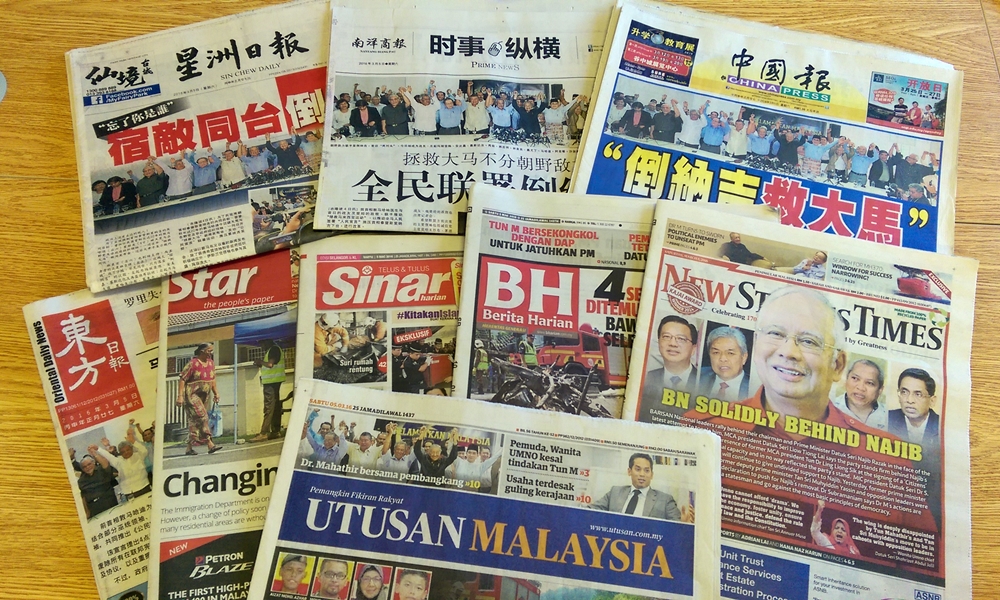
MP SPEAKS | It is impossible to wipe out racism overnight. We need to change hearts and minds, not just change governments or institutions. Many who voted Pakatan Harapan on May 9 last year, wanted to see a new Malaysia rising from the ashes of kleptocracy. I always knew it would be difficult.
One major challenge is to deal with the varied and sometimes conflicting interests of our diverse society. Often, these interests are intricately woven into who we are, that is, our identity.
Confronting these interests then becomes a confrontation of different identities, be it race, religion, gender, or social class and so on and so forth. The most controversial and perhaps the most toxic of these confrontations would be when dealing with the issues of race and religion.
Since May 9, I have watched how racism rears its ugly head. There is one particular incident which I remember vividly, and I have seen it repeated on several other occasions.
In one town-hall session organised by my Kluang office together with the local council immediately after May 9, businessmen and hawkers took turn to castigate the municipal enforcement unit.
First, a Malay businessman accused the enforcement of being biased against Malay petty traders because the Member of Parliament is a Chinese. He questioned whether the local council actually cared for the Malays at all.
It was followed by a tirade by an elderly Chinese man who operates a stall in the local pasar (wet market). This person, too, argued that the enforcement unit only fined Chinese traders, while Malays who committed the same offences got away easily.
As the proceeding went on, I noticed journalists from the Chinese media took his photos and later interviewed him further for his views. One can imagine how this town-hall meeting will be reported in the Chinese press: “Chinese businesses claim discrimination by local council.”
Later, an Indian businessman came forward and similarly spoke against the enforcement team. He criticised the local council for selective persecution, only taking action along the streets where most Indian businesses are situated. “Why the next street was never fined?” he asked.
This Indian gentleman, too, was interviewed by the press, but this time only from Tamil media.
It must be noted that the only Malay reporter in Kluang was recently transferred to Johor Bahru; otherwise, I am sure the same media interview situation will also have happened with the first Malay businessman.
What can we learn from the above anecdote?

First, our media is very race-centric. They tend to report on affairs within a closed community - one which is defined by skin colour, language and religion. Unless there is a major incident which the media thinks everyone should be informed off, most news appearing in the media is limited to the affairs of one or the other ethnic group. The corollary then is readers of one media rarely get to read about the others.
I asked a question in three languages (I cannot speak Tamil, but one of my councillors did the translation into Tamil for me), “Who among you feel that the local council enforcement is racially biased?”
Interestingly, when I asked in Malay, most Malays raised their hands; when I spoke in Mandarin, the Chinese raised their hands and when my councillor did the translation in Tamil, the Indians in the audience raised their hands.
I asked everyone to look around the hall: “Everyone who raised their hands, which ethnic group actually benefited from the so-called biased enforcement?” Clearly, there was no racial discrimination as was claimed.
The enforcement officers applauded my speech, appreciative of my attempt to clear their name.
There are problems with the enforcement process to be sure; for example, rigid enforcement without consideration for humaneness, the lack of education on municipal by-laws, as well as insufficient infrastructure to accommodate the growing demands of petty traders and hawkers.
Yet, instead of looking at the core of the issue, most people immediately resort to looking at enforcement through a racial lens.

This seems to be the pattern each time there are news of enforcement against delinquent business owners by the local council. Comments in Mandarin will read, “Why no action against the Malay stalls?”, while Malay speakers will ask the same question about Chinese stalls.
We are, unfortunately, working and living in our own silo, ignorant of the things which are happening just next door.
Putting state and federal government policies aside, it is impossible to have good governance at the local level if we continue to see everything through coloured lens.
Poor pasar design inconveniences everyone regardless of ethnicity and religion, while potholes do not discriminate which motorists or road user to ensnare. Bad governance affects everyone, good governance benefits everyone.
Thus, it is essentially wrong and totally unsubstantiated for some politicians to claim that if we allow for greater local democratisation, especially through local government election, only certain ethnic groups will benefit.
Today, 70 percent of our local authorities cover areas where no single race makes up two-thirds of the population. In other words, most of our cities and towns are diverse in their racial composition.
The aspiration for a democratised local government has very little to do with race, if at all. We want a democratised local government because we want greater accountability to ratepayers. The old adage - No taxation without representation - is applicable here, and that has nothing to do with race or religion.
Facing up to racism is a difficult task. We will not be able to move forward if we are still interacting with each other the way we have been doing all these while: in silos and in isolation of one another.
The divide and conquer game must come to an end. And it can only end if each of us decides to step out of our communal comfort zone to embrace the others.
The time has come for a truly Malaysian media, one which will report news from a Malaysian perspective. It goes without saying that government will have to start the reform process, and under Pakatan Harapan, the road to reform has been launched.
Yet, let us not discount our collective responsibility as Malaysians to also change our own mindset, especially when it comes to the issues of race and religion. It is not easy, but there is no better time to start than now, in this new Malaysia.
WONG SHU QI is the MP for Kluang. - Mkini


No comments:
Post a Comment
Note: Only a member of this blog may post a comment.